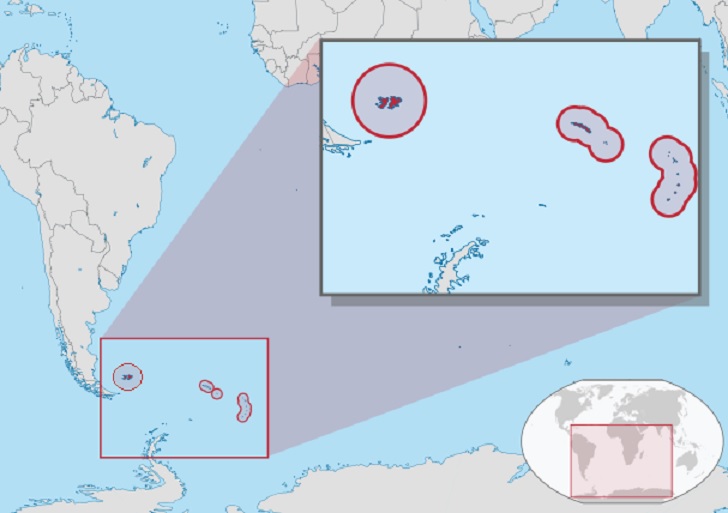The aspiration to control the South Atlantic (Falklands, South Georgia, and South Sandwich Islands), part of Antarctica, and part of the Chilean Southern Pacific, have been and are a vital part of Argentina’s foreign policy, as evidenced by the following official statement from the Argentine Foreign Ministry entitled:
“Broad international support for Argentina on the Question of the Malvinas Islands (Falkland Islands) in the Fourth Committee of the UN General Assembly”. Let us recall that the Falklands have been under British sovereignty since 1833.
The official information states that: “At the first session of the Joint General Debate on decolonization issues of the Committee on Special Political and Decolonization of the United Nations General Assembly (Fourth Committee), Argentina presented its national position on the question of the Malvinas Islands and received broad support from the other Member States for the resumption of bilateral negotiations to put an end to the sovereignty dispute in the South Atlantic.

The Permanent Representative to the United Nations, Ambassador María del Carmen Squeff, presented the grounds that support Argentine rights and reiterated the invitation to the United Kingdom to peacefully resolve the dispute following the provisions of the General Assembly.
Ambassador Squeff stressed that the British refusal to resume negotiations has no basis in international law since “in the question of the Malvinas Islands we are dealing with a territory colonized by the United Kingdom, without there being a people subject to a colonial subjugation, domination or exploitation”.
The Argentine representative drew attention to the unilateral actions carried out by the United Kingdom in the disputed area, which include the illegal exploration and exploitation of renewable and non-renewable resources in the disputed area and a disproportionate military presence that is entirely unjustified “since all the democratic governments of Argentina have reaffirmed their decision to settle the dispute exclusively by peaceful means”.
He also reiterated the Argentine government’s interest in the good offices of the UN Secretary-General to assist the parties to the sovereignty dispute in resuming negotiations.
For his part, the Ambassador of Ecuador, speaking on behalf of the Community of Latin American and Caribbean States (CELAC), recalled the permanent interest of the countries of the region in the resumption of negotiations between Argentina and the United Kingdom to find a peaceful and definitive solution to the dispute.
He reported on the mandate of the Heads of State and Government of the Community to its Pro Tempore Presidency to request the Secretary-General to renew his efforts in the fulfillment of the good offices’ mission on the issue and highlighted the permanent constructive attitude and willingness of the Argentine Government to reach, through negotiations, a peaceful and definitive solution to this anachronistic colonial situation on American soil.
On behalf of MERCOSUR and Associates, the representative of Uruguay reiterated the support of the bloc for Argentine rights and pointed out that the way to end the special and particular colonial situation of the Islands is the peaceful and negotiated solution of the dispute between the two parties.
It also warned that it was essential for the United Kingdom to put an end to the exploration and exploitation of natural resources and to refrain from promoting military exercises in the disputed area and reiterated the recognition of the “right of the Argentine Republic to take legal action, with full respect for international law, against unauthorized activities in that area”.
During the session, there were numerous statements in national capacity: in addition to Ecuador and Uruguay, Nicaragua, Mexico, Guatemala, Peru, Brazil, and Panama spoke in favor of the legitimate rights of the Argentine Republic in the sovereignty dispute over the Malvinas (Falklands), South Georgia, and the South Sandwich Islands and the surrounding maritime areas.
The Fourth Committee’s debate on decolonization will continue next week, and more interventions are expected concerning the Malvinas Islands issue in support of Argentine rights and the resumption of negotiations between Argentina and the United Kingdom.
The Secretary for Malvinas, Antarctica and South Atlantic, Guillermo Carmona, highlighted the support received by Argentina in the treatment of the Malvinas Question in the Fourth Committee and thanked the work of the Permanent Representation of Argentina to the United Nations, headed by Ambassador María del Carmen Squeff.
The Argentine Government thanks all the members of the international community who have spoken and will speak throughout the debate in the Fourth Committee in support of the resumption of negotiations between Argentina and the United Kingdom as the only way to put an end to the anachronistic colonial situation of the Malvinas, South Georgia, and the South Sandwich Islands and the surrounding maritime areas.
It should be recalled that in June of this year, the Special Committee on Decolonization, a subsidiary body of the United Nations General Assembly, adopted a new resolution on the question of the Malvinas Islands in which it reiterated the call to Argentina and the United Kingdom to resume sovereignty negotiations.
In turn, the issue was present at the high-level week held in September at the General Assembly, when the President of the Nation reaffirmed Argentina’s rights over the Malvinas Islands, South Georgia, South Sandwich Islands, and the surrounding maritime areas and reiterated the willingness to return to the negotiating table”, the statement concludes.
With information from Infogate

